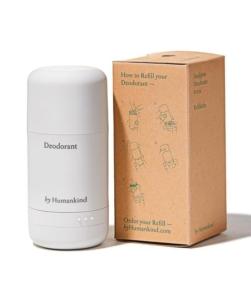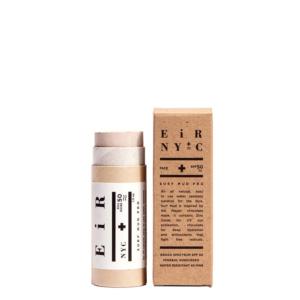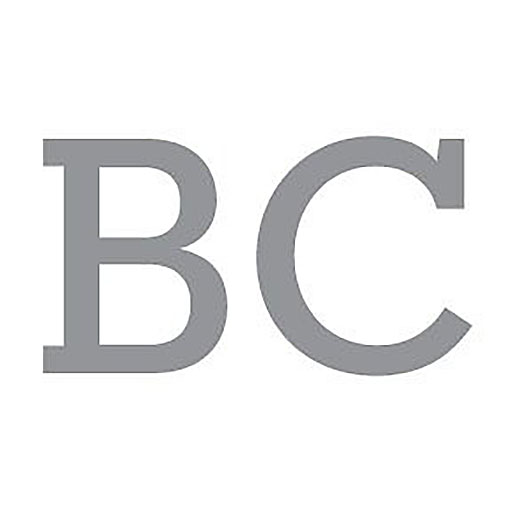Nontoxic Beauty
Eat less red meat, drink more water, don’t cook with vegetable oil or canola oil. . .the list of things we should do to maintain a healthy lifestyle is never-ending and daunting. Beyond simply checking boxes, it’s more important to have the information for why we make certain choices.
Research shows that Americans, more so than Europeans or Canadians, don’t have the tools or knowledge to make informed, healthy decisions when it comes to beauty products. Unlike food, buying “organic,” “nontoxic” or “natural” beauty products means relatively nothing in US stores when comparing them to anything else on the shelves.
In the US, our safety standards and regulations have banned 11 ingredients from beauty and skin-care products, while the EU has banned 1,300. Not only are we behind in that aspect, but research shows that some of the 82,000 ingredients used in personal-care products are industrial chemicals that include pesticides, reproductive toxins and carcinogens.
If you eat clean, drink plenty of water, work out five times a week, meditate daily and have hit a maximum for the amount of effort you can put into living clean, stop reading here. You’re doing plenty; you’re doing great. But if you take pride in only using organic and nontoxic beauty products as part of your health regime, keep reading and do your own research rather than trusting the labels in your cabinets.
Chemicals to Avoid

Simple is always better: a good rule of thumb is to only use products for which you can identify all the ingredients. Of course, for some of us lacking any chemistry background, that can be a challenge when visiting Target or Sephora, so here’s a short list of
red flags:
Fragrances and Perfumes
In the US, companies are not required to reveal how a particular fragrance is made. About 3,000 chemicals are used to add fragrance to a product, even for the “fragrance-free” smell. Most of these chemicals have not been tested in the US for toxicity, and many of them trigger allergies, migraines and asthma symptoms. In a survey of asthmatics it was found that three out of four individuals are triggered by added fragrances.
Sodium Laureth Sulfate
You’ve probably been told not to use shampoos with sulfates, but do you know why? Sodium laureth sulfate (or SLES) is made using ethylene oxide and 1,4-dioxane, which the International Agency for Research on Cancer has labeled a carcinogen. Ethylene oxide has also been found to damage the nervous sy
stem and may interfere with human development. In day-to-day life, SLES is also a skin irritant and can trigger allergies.
BHA and BHT
Commonly used as preservatives in moisturizers, butylated hydroxyanisole (BHA) and butylated hydroxytoluene (BHT) are not only skin irritants but also human carcinogens. In Europe, BHA is listed as a category 1 priority substance based on evidence that it interferes with hormone function and regulation. According to the US Food and Drug Administration, BHA is considered safe as long as it’s under .02% of a food or product by weight of the total fat or oil content.
Parabens
Much like other hot terms on today’s shelves, “paraben-free” is gracing the front of many personal-care containers. Yes, parabens are known to interfere with hormone function, mimic estrogen and appear in breast-cancer tissues. Being paraben-free is a step in the right direction, but it’s important to understand the underlying issue when it comes to this chemical. Parabens are preservatives, which the FDA requires any products containing water to have if they aren’t refrigerated after opening. Because most preservatives are chemical-based, it’s important to know what the parabens in your product are being replaced with—chances are, it’s something just as dangerous. More often than not, it’s safer to opt for a face mask that requires refrigeration rather than a preservative.
Formaldehyde
Another preservative that you aren’t likely to see on a label is formaldehyde. It’s a human carcinogen, and research shows products with formaldehyde slowly and continuously release small amounts of the chemical into the air and your skin, hair and nails. When looking for formaldehyde in your products, check for quaternium-15, DMDM hydantoin, imidazolidinyl urea, diazolidinyl urea, sodium hydroxymethylglycinate and bronopol.
To Try:
 Natural Deodorant by Humankind
Natural Deodorant by Humankind
Reduce your waste and worry less about your health with By Humankind’s all-natural, refillable deodorant. Their refill order system promises less plastic waste with natural and sustainable ingredients. Even the fragrances used are made from oils rather than chemicals.
To learn more, visit byhumankind.com.
Nourishing Shampoo by True Botanicals
Full of antioxidants, this shampoo is made with green tea oil, meadowfoam seed oil and aloe extract. True Botanicals is sulfate-free and nontoxic while maintaining the “lathering” quality of traditional shampoos.
To learn more, visit truebotanicals.com.
Beard Oil by Brickell
For three months of smooth, soft and well-kept beard hair, try Brickell’s Beard Oil. Made with oils, natural extracts and vitamins, Brickell promises an allergen- and chemical-free product. To top it off, their beard oil is 100 percent organic, vegan, gluten-free and cruelty-free.
To learn more, visit brickellmensproducts.com.
Surf Mud by EiR
If you’re on the hunt for a daily nontoxic sunscreen, look no further. EiR has perfected the “sun stick,” which is a water-resistant sunscreen that can be applied directly onto your face. Made with beeswax, cocoa butter, coconut oil, cocoa powder and zinc, Surf Mud is completely compostable and environmentally friendly.
To learn more, visit eirnyc.com.
Active Face Wash by EiR
Along with being all-natural and vegan friendly, some EiR products are made to be refrigerated for a longer shelf life, excluding preservatives from the ingredient list. Their Active Face Wash minimizes breakouts using African black soap, essential oils and cacao seed butter.
To learn more, visit eirnyc.com.


